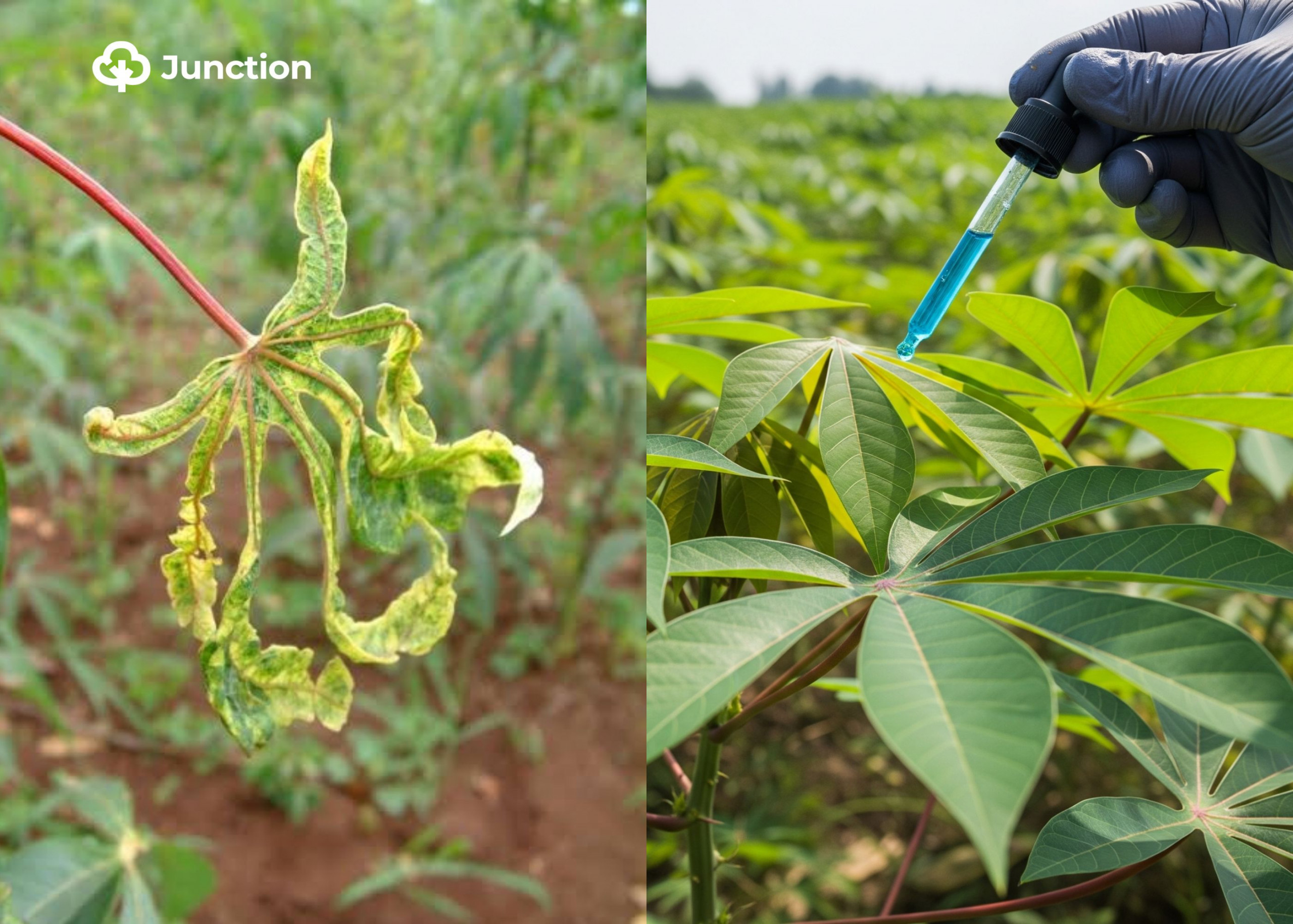News in brief:
– Five improved cassava varieties tested in Nigeria showed full resistance to Cassava Mosaic Disease and Cassava Brown Streak Disease under field conditions.
– The TME 419 variant excelled in both disease resistance and yield, offering farmers a reliable and productive option.
In a major step toward strengthening Nigeria’s food security, researchers have identified five improved cassava varieties that show remarkable resistance to viral diseases. This discovery brings new hope to millions of farmers battling losses caused by Cassava Mosaic Disease (CMD) and Cassava Brown Streak Disease (CBSD).
The study was led by Abdullahi Hussaini Liman and a research team from the Federal University of Technology, Minna, in collaboration with experts from New Mexico State University and the University of Georgia, USA.
Diseases threaten staple crops
Cassava is a vital staple for many Nigerian households, particularly in rural communities, where it is a major source of food and income. However, viral infections such as CMD and CBSD have been responsible for devastating crop losses nationwide, often wiping out entire fields and plunging families into food insecurity.
To address this issue, five cassava genotypes —PRO Vitamin A (PRVA), TME 419, TMS 98/0505, TMS 98/0581, and TMS 30572 — were evaluated under natural field conditions in Minna, Niger State. The varieties were obtained from the International Institute of Tropical Agriculture (IITA) and monitored for symptoms of viral infection throughout the growing season.
Strong resistance with no symptoms detected
According to the study, all five cassava varieties displayed high levels of resistance to viral infections. Researchers found no signs of CMD or CBSD in the plants throughout the planting season.
“The leaves stayed green and healthy, with no mosaic or brown streak symptoms. This is a clear sign of strong natural immunity to local virus strains,” Liman stated.
Among the varieties, TME 419 emerged as the top performer, not only resisting disease but also outperforming others in terms of height, leaf production, and root yield. The research team noted its potential as a dual-purpose variety offering both protection and productivity.
Boost for rural farmers and food production
“This breakthrough means farmers can now plant cassava that does not require expensive chemical treatment or rigorous disease control,” said Liman. “Adopting these varieties can reduce crop losses, boost food production, and raise incomes, especially in rural areas where cassava farming is widespread.”
The researchers emphasised the role of consistent breeding programs in safeguarding crops and achieving long-term food security. They also urged agricultural extension officers and policymakers to promote these disease-resistant varieties among farmers nationwide.
While the results are promising, the study recommends further evaluation of these cassava varieties under different environmental conditions and against other prevalent cassava diseases.
The research was published in the Journal of Scientific Research and Reports and is expected to influence future cassava improvement programs across sub-Saharan Africa.



